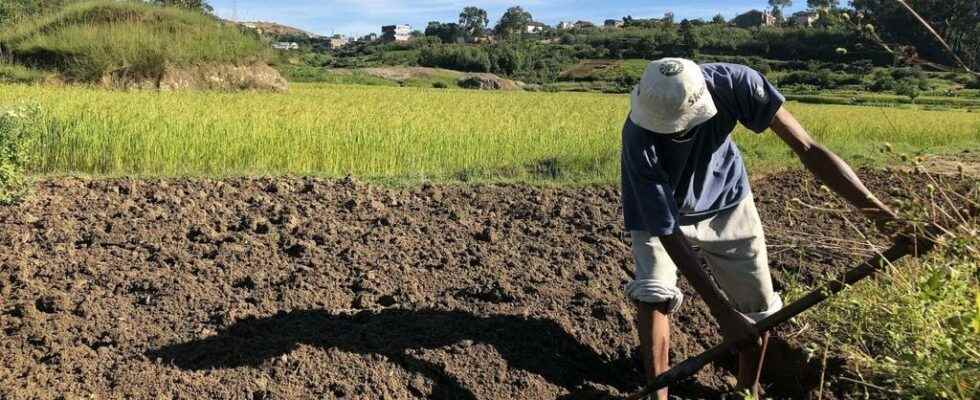While rice is the staple food of the Malagasy, Madagascar has to import 500,000 tonnes of it each year to feed its population. Saturday, June 18, near Antananarivo, then closed a national conference on food self-sufficiency, a campaign promise of the president. During three days of consultation, stakeholders in the agricultural sector came together to develop a series of measures to support farmers and improve yields.
With our correspondent in Antananarivo, Laetitia Bezain
The ambition of the Malagasy authorities: a yield of 4 tons of paddy per hectare instead of the current 2.5 tons. Among the measures taken to improve productivitythe establishment of an agricultural counter in each district of the country, explains the Minister of Agriculture and Livestock, Harifidy Ramilison:
” The producers – whether they are farmers, breeders or fishermen – will be able to find the services they will need, including equipment, agricultural materials, inputs, advice. There will also be a support center for decentralized land management which will receive complaints and there will be a magistrate who will help producers solve problems of access to land. So there will be all the ingredients for, in the short term, we achieve food self-sufficiency, we hope by the end of 2023. »
A measure which will be financed by the State, informs the Minister of Agriculture. While 80% of the population works in the agricultural sectorand especially in rice cultivation, Malagasy farmers remain very vulnerable and struggle to live from their activity. José Pierre Didina is a farmer and president of an association that brings together 700 farmers in the district of Vatomandry, in the east of the Big Island.
Our farmers’ association has 400 hectares of land to grow maize or other cash crops, but we only have spades and sickles to work with. We are ready to improve our yields but we need materials and seeds to be able to cultivate our land ourselves. We therefore expect the rapid implementation of these measures. We are also in a landlocked area because of the road which is in very bad condition, so the collectors who come to us buy our products at a very low price to compensate.
To achieve food self-sufficiency, the Malagasy government is also banking on agribusiness and plans to expand its area by 5,000 hectares per district. ” In these farms, farmers will work with operators and investors, both national and foreign. “, indicated the Malagasy head of state Andry Rajoelina, during this national conference.
► Read also : Madagascar: agro-ecology, a model for achieving food self-sufficiency?
